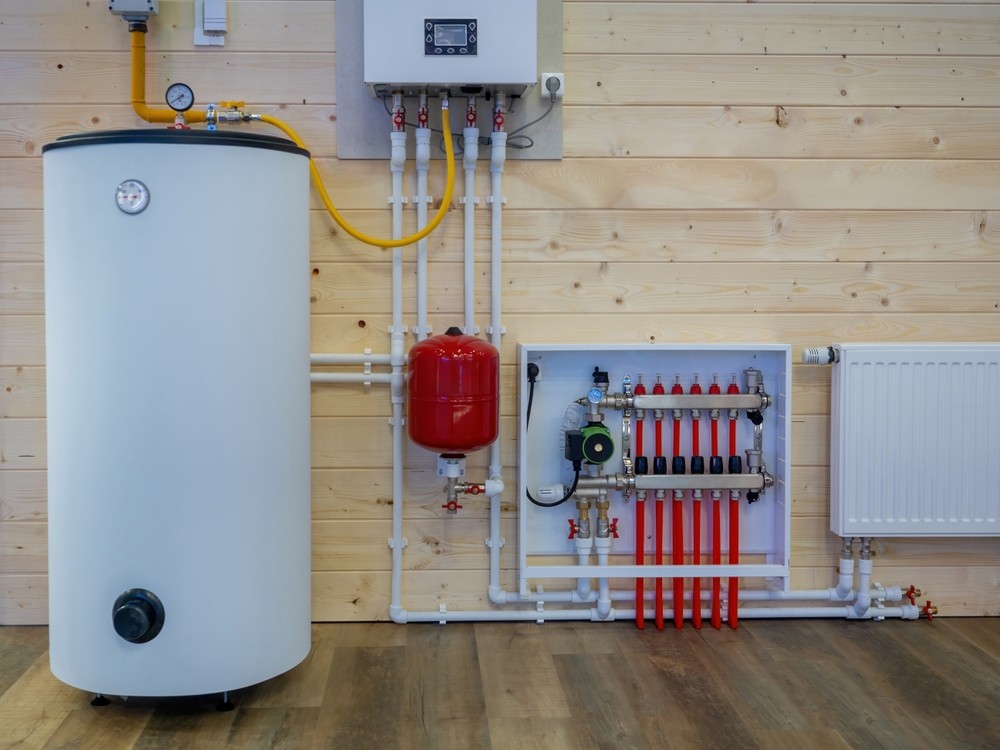Many homeowners don’t give much thought to their water heater—until it stops working. Yet, this essential household appliance can be one of the biggest energy consumers in your home, accounting for nearly 20% of total household energy use. If you have an outdated or inefficient water heater, you may be spending hundreds of dollars more than necessary each year.
The good news? Advancements in water heating technology mean that upgrading to a modern, energy-efficient model can reduce your energy consumption by as much as tenfold. This means lower utility bills, a reduced environmental impact, and a more reliable hot water supply.
Let’s explore how an energy-efficient water heater can drastically cut energy use, the different types available, and why now is the best time to make the switch.
How Much Energy Does Your Water Heater Use?
Traditional water heaters—especially those over 10–15 years old—tend to waste significant amounts of energy. The reasons for this include:
Inefficient heating elements – Older models often rely on outdated heating technology that takes longer to warm water, consuming excessive energy.
Standby heat loss – Storage tank water heaters keep water hot 24/7, meaning they are constantly using energy even when no one is home.
Wear and tear – As parts degrade over time, your water heater becomes less efficient, requiring more energy to do the same job.
Sediment buildup – Over time, minerals in the water can accumulate in the tank, making the heater work harder to heat water.
All of these factors contribute to higher energy bills, more frequent repairs, and inconsistent hot water supply.
According to the U.S. Department of Energy (DOE), water heating accounts for an average of $400–$600 annually in energy costs per household. However, outdated systems can push this number much higher.
How a New Water Heater Can Reduce Energy Use by Up to 90%
New water heater technology has dramatically improved efficiency, with some models capable of reducing energy consumption by 50% to 90%. Here’s how:
1. Tankless (On-Demand) Water Heaters
Energy Savings: Up to 50%
Unlike traditional storage tank heaters, tankless water heaters heat water only when it’s needed, eliminating standby energy loss.
- How It Works: When you turn on a hot water tap, cold water flows through a heat exchanger, which instantly warms it up.
- Why It’s Efficient: Since there’s no tank storing heated water, it doesn’t use energy when idle—you only pay for the hot water you use.
Tankless water heaters are especially beneficial for smaller households or homes with lower hot water demands. While they have a higher upfront cost, they last longer (20+ years) and save significantly on energy bills.
2. High-Efficiency Storage Tank Water Heaters
Energy Savings: Up to 30%
If you prefer a traditional storage tank model, newer high-efficiency tanks have better insulation, advanced heating elements, and smart controls that reduce standby energy loss.
- Insulation Improvements: Many high-efficiency tanks use foam insulation to minimize heat loss.
- Smart Heating Elements: Some models include self-modulating technology that adjusts power usage based on demand.
These upgrades result in significant energy savings over older tank models.
3. Hybrid (Heat Pump) Water Heaters
Energy Savings: Up to 70%
Hybrid water heaters, also known as heat pump water heaters (HPWHs), are among the most energy-efficient options available.
- How They Work: Instead of generating heat directly, they pull heat from the surrounding air and use it to warm the water.
- Why They’re Efficient: They use only a fraction of the electricity compared to standard electric water heaters.
While hybrid models may cost more upfront, they pay for themselves through dramatically lower utility bills and often come with government rebates.
4. Solar Water Heaters
Energy Savings: Up to 80–90%
For homeowners looking for the ultimate energy-efficient solution, solar water heaters are a game-changer.
- How They Work: Solar collectors absorb energy from the sun and transfer it to a storage tank.
- Why They’re Efficient: On sunny days, they can provide nearly 100% of your home’s hot water needs without using any gas or electricity.
Even on cloudy days, most systems have a backup heating source, ensuring a steady supply of hot water.
While the initial cost is higher, solar water heaters provide massive long-term savings and may qualify for federal and state tax incentives.
Additional Benefits of Upgrading Your Water Heater
Beyond energy efficiency, a new water heater brings several other advantages:
Lower Utility Bills
A more efficient system means significant monthly savings, with some homeowners cutting their water heating costs by $200 or more per year.
Longer Lifespan & Fewer Repairs
Old water heaters break down more frequently. A high-efficiency model can last 15–25 years with minimal maintenance.
More Hot Water, Faster
Tired of running out of hot water? Modern water heaters heat water faster and provide more consistent temperatures.
Eco-Friendly & Reduced Carbon Footprint
By switching to an energy-efficient system, you’ll reduce greenhouse gas emissions, making your home more environmentally friendly.
How to Choose the Right Water Heater for Your Home
Before upgrading, consider these key factors:
Household Size & Hot Water Needs
- Small homes (1–2 people) may benefit from a tankless unit.
- Large families (4+ people) might need a high-efficiency tank or hybrid system.
Energy Source Availability
- If you have solar panels, a solar water heater could be the best choice.
- Homes with access to natural gas might benefit from a gas-powered tankless model.
Budget & Upfront Costs vs. Long-Term Savings
- While hybrid and solar water heaters cost more initially, they offer the highest long-term energy savings.
- Tankless water heaters have a moderate upfront cost but last longer than traditional tanks.
If your water heater is 10+ years old, upgrading to an energy-efficient model is one of the best investments you can make. Not only will it cut your energy use dramatically (potentially tenfold), but it will also lower your monthly bills, reduce maintenance headaches, and help the environment.
If you’re ready to upgrade, consult a local professional to find the best energy-efficient water heater for your home. Many states offer rebates and incentives, so be sure to check for available savings before making your purchase.



